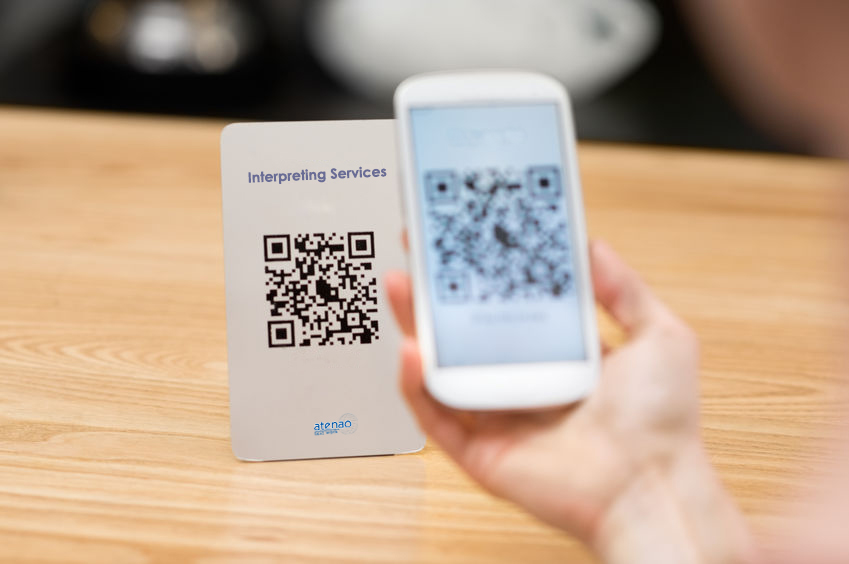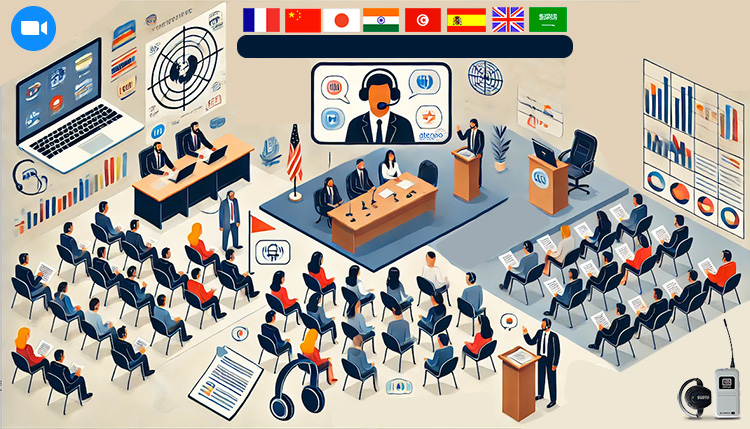Understand Interpreting Rates Before Your Event
Planning a multilingual event? Whether you’re hosting an international conference, a hybrid workshop, or an online meeting, getting a clear and customized interpretation quote is a crucial first step. This article walks you through what you need to know to receive a customized rate that fits your event—and your budget.
Why Understanding Interpreting Rates Matters
Interpreting rates are more than just numbers. They reflect the nature of your event, the expertise required, and the logistics involved. When you request interpreting rates from a service provider, you’re not just asking for a price—you’re setting expectations, establishing a service agreement, and preventing misunderstandings.
Without agreed-upon interpreting rates, things can quickly become unclear. Shifting expectations may lead to unexpected costs or delays. The interpreter might not fully grasp your needs, which can impact the quality of service. There’s also a financial risk, both for you and the provider. In short: starting a project without discussing interpreting rates is like jumping without a parachute.
What Should a Quote Include?
In France, a legally valid interpretation quote must include certain key details:
- The words “Quote” or “Price Proposal”
- Full contact details for both you and the service provider
- A clear description of the services requested
- Source and target languages
- Type of interpretation (simultaneous, consecutive, etc.)
- Number of interpreters needed and how long you’ll need them
- Interpreter fees, along with details on covered travel and meal expenses
- Whether a project manager is included
- The quote’s expiry date
- Equipment details, if needed (e.g. booths, headsets)
- Number of technicians and their working hours
- Total cost (before and after tax), and payment terms
Once you sign it, the quote becomes a binding contract. It protects both sides and gives you a solid reference point if anything goes wrong.
What Information Do You Need to Provide?
To help agencies give you an accurate quote, you’ll need to provide the following:
- Source and target language(s): Identify the main language spoken during the event (the source language), as well as the language or languages into which you need interpretation.
- Date and time: It’s essential to provide the exact date and duration of the event. If the precise times aren’t known yet, an estimated duration is still very helpful.
- Event format: Will the event be in-person, online, or hybrid (both in-person and online)? The format directly affects the type of equipment and technical support needed.
- Event location: For in-person or hybrid events, the location affects travel and accommodation costs for interpreters, technicians, and project managers. It also influences equipment transport costs.
- Theme or topic: The complexity of the topic might require interpreters with specialized knowledge in a specific field, which can impact the quote.
- Type of event: Is it a conference, a one-on-one meeting, a board meeting, a training session, or a guided tour? The nature of the event helps determine the interpreter profile, the type of equipment needed, and the logistics involved.
- Event schedule: Provide a detailed outline of the planned sessions, locations, breaks, and any other relevant information that will help the interpretation agency organize the service effectively.
- Number of participants and speakers: The more people who need interpretation, the more complex the setup—especially regarding equipment and staffing.
- Audience participation: If the audience is expected to ask questions, the interpretation setup may need to be adapted, for example by using language relay systems.
- Event recording: Indicate if the event will be recorded and for what purpose. Broadcasting interpreted content may require specific equipment adjustments and could involve extra costs related to copyright.
All these elements impact interpreting rates by affecting complexity, staffing, and logistics.
Interpreting Rates by Event Format
Interpretation needs vary depending on the format of the event—online, hybrid, or fully in-person.
Below are the key details to provide for each format to help you get the most accurate quote possible.
Fully Online Interpreting Events
- Preferred platform: Indicate whether you have a specific platform in mind, such as Zoom, Webex, or Teams. Some platforms—like Zoom—are better suited for multilingual settings.
- Zoom room provided: If you’re using Zoom, specify whether the interpretation agency should provide the virtual room or if you already have a business Zoom account.
- Event format (meeting or webinar): Depending on the level of interaction planned, either the “meeting” or “webinar” mode will be chosen—each comes with its own technical requirements.
- Technical provider and equipment: If you already have a technical provider on board, this can simplify coordination and lower equipment-related costs.
- Interpretation equipment: If the event requires specific equipment—such as an interpreter console or portable interpreting kits (whispering sets)—be sure to mention it. The number of languages, the number of participants, and the level of interaction between them will determine the type of equipment needed.
Hybrid Interpreting Events

For hybrid events, where some participants are on-site and others are joining remotely, certain details are essential:
- Interpreters on-site or remote: You can choose to have interpreters physically present at the venue or working remotely, depending on your preferences and budget constraints.
- Video conferencing system: Check whether the physical venue is already equipped with a suitable video conferencing system to ensure smooth communication between in-person and remote participants.
These details help the interpretation provider plan the necessary equipment and personnel, taking into account the specific challenges of a hybrid setup.
In-Person Interpreting Events
- Room sound system: Whether the room is equipped with an adequate sound system will impact the interpretation setup-such as the need for headsets, microphones, or interpreter booths.
A clearly defined technical setup allows interpreters to deliver high-quality service and effectively meet the linguistic needs of participants.
Need Interpreting Rates? Let’s Talk!
Organizing a multilingual meeting, executive board session, international expo, or diplomatic gathering? We’re here to help. Just fill out the form below with your event details, and we’ll provide personalized interpreting rates—clearly explained, competitively priced, and tailored to your needs.
Our team will ensure your message is conveyed with professionalism, clarity, and in every language required.







